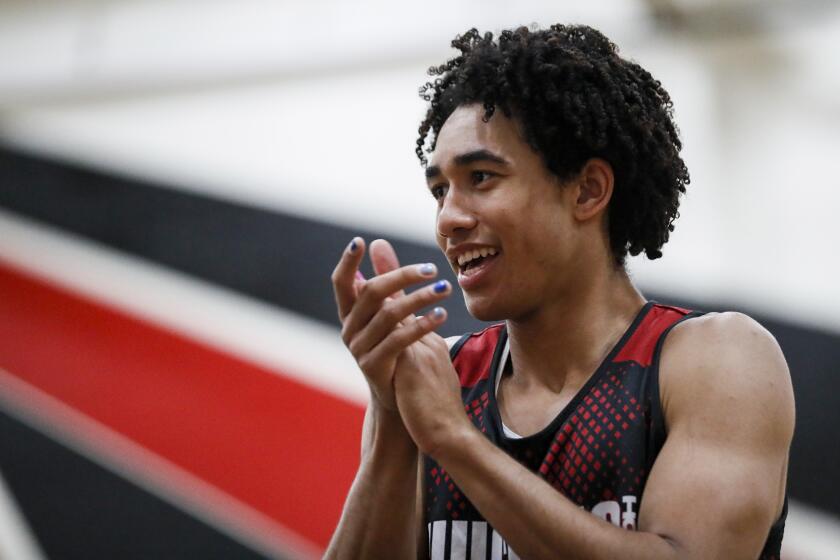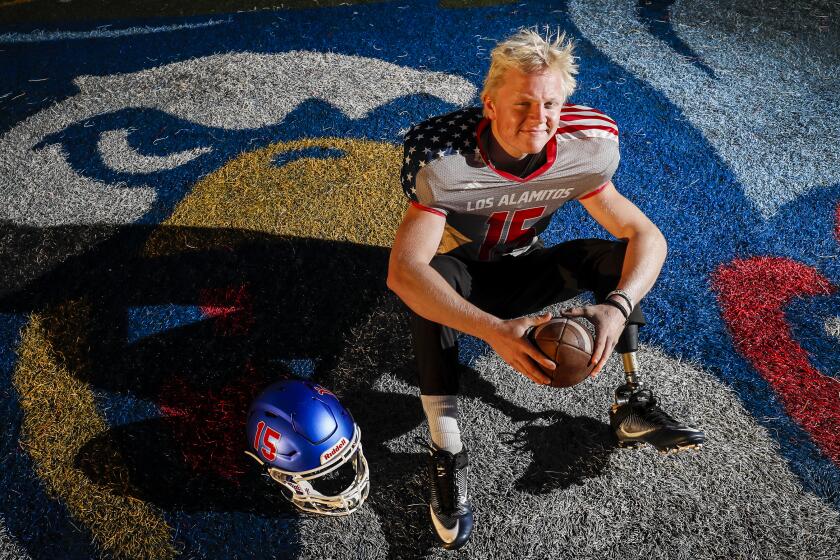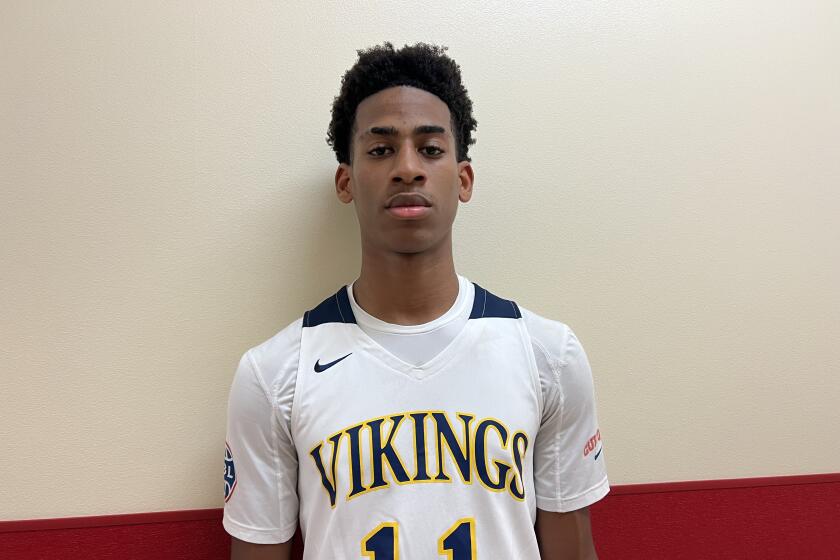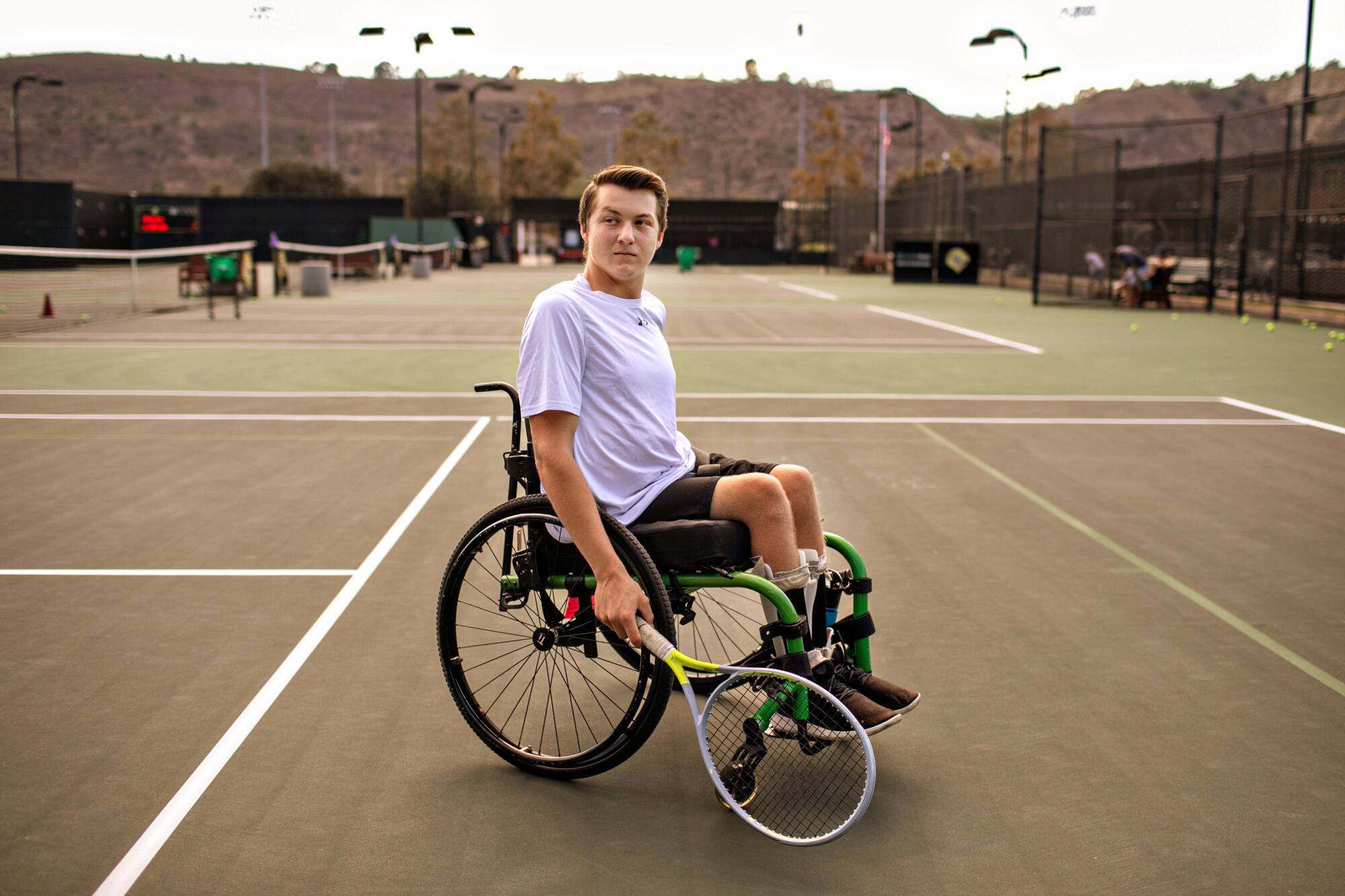
- Share via
The boy didn’t want to talk at first.
It was flu season in early 2014, no visitors allowed in the rehab center at Rady Children’s Hospital in San Diego. Manny Gomez, a 15-year-old with an incomplete spinal cord injury, grew lonely. Most patients would stay for a week, faces cycling in and out, nobody going through Gomez’s same months-long process of physical therapy.
Except for one boy named Landon Sachs, 8 years old, who shared the same spinal cord injury. The kid didn’t say much, even when Gomez tried to engage him. The older boy respected it. He figured it was a don’t-talk-to-strangers thing.
It was bigger than Gomez could’ve known.
Eventually, though, Landon opened up. Maybe, Gomez thought, it was seeing another kid in a wheelchair smile. The two became fast friends, grabbing onto each other’s chairs and wheeling down the hallways. The boy got Gomez to try Clash of Clans, and Gomez got him to try Mexican candy, delighting when his young friend would turn up his nose before lighting up at the taste.
Gomez just saw a young kid. He didn’t know why Landon was there. Didn’t know about the story that clung to his last name, didn’t know about the gruesome night that put him in that wheelchair, the bullets that flew and the family torn apart.
“Never cared to ask,” Gomez said.
But eventually, as Gomez left, they parted ways. And Landon’s shell went back up, protecting him against unimaginable tragedy.
Nearly a decade later, Landon Sachs is 17, his eyes bright and hair neatly coiffed. He’s found purpose, the San Juan Capistrano JSerra High senior proudly wheeling the campus halls in his tennis uniform, a racket poking out of his backpack.
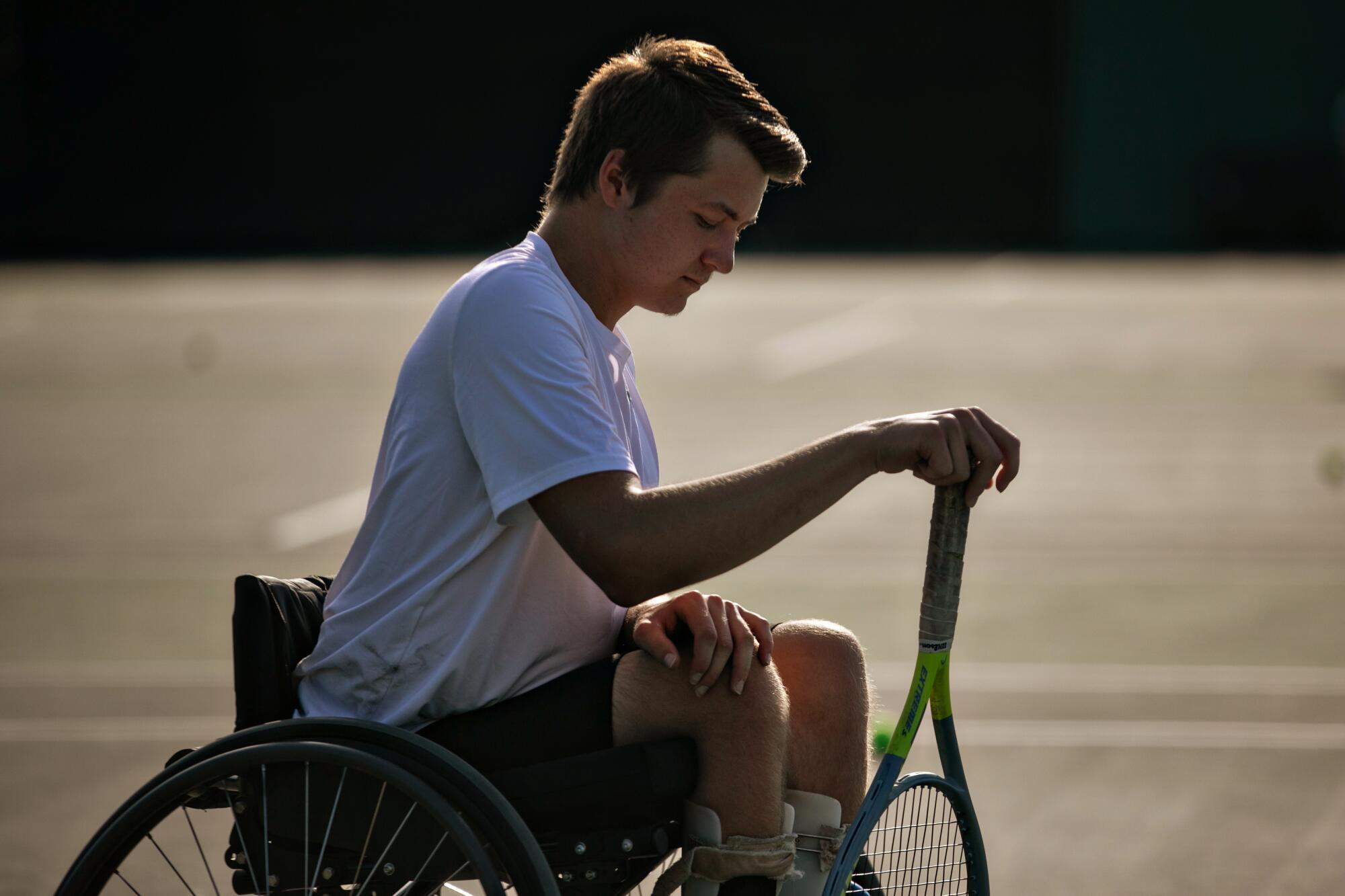
In the spring, he became the first athlete in Orange County high school history to play a tennis match in a wheelchair against able-bodied competition — and finished second in the USTA level 1 junior national wheelchair championships in Rome, Ga.
Landon’s still quiet, sometimes. But when asked what he wants people to know about him, he paused, then spoke.
“Not just some dude in a wheelchair,” he says.
As a toddler, Landon was adopted from a Russian orphanage by the Sachs, an affluent family in Orange County. He was an active kid, dreaming one day of becoming a pro baseball player.
His oldest brother, Myles, is now essentially Landon’s guardian, watching over him even as recent health issues leave Myles in need of a kidney transplant. And when the 30-year-old Myles was younger, he promised their mother, Andra, that if anything happened to her, he’d take over and make sure the family was taken care of. That “everything’s right in the world,” as he said.
But everything, in the wake of one February 2014 night, went wrong.
Corona Centennial High basketball star and Duke commit Jared McCain has leveraged a massive TikTok following into a growing NIL empire.
In a video of a March 2014 interrogation obtained by The Times from the Orange County Sheriff’s Department, their brother Ashton Sachs recounted grim details to investigators, head bowed and fingers intertwined. A month earlier, he’d driven down from Washington, where he was going to college, to Orange County with a gun in the trunk of his Toyota Prius.
In the early morning the next day, he went upstairs in the family’s house on Peppertree Bend in San Juan Capistrano and fatally shot sleeping parents Brad and Andra.
“I don’t really have a reason why,” Ashton whispered to investigators, later revealing he was suicidal. “Just a lot of problems.”
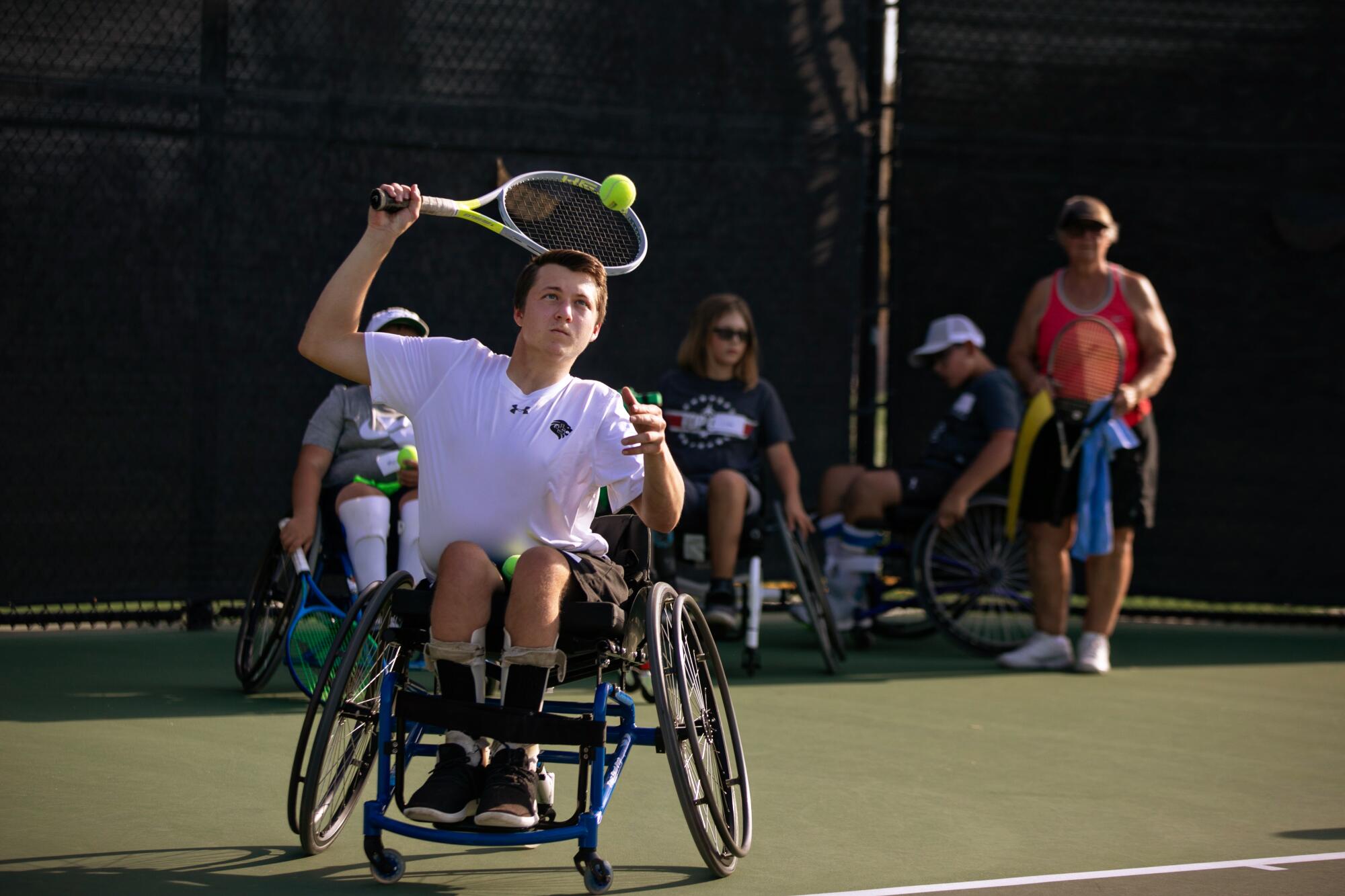
He then ran out, saw Landon, and fired two shots toward the then-8-year-old boy. Landon was left paralyzed. Ashton is serving a life sentence without parole in the Chuckawalla Valley State Prison.
As their life became the fallout, Myles instructed Landon to stay out of the spotlight.
“Keep a low profile,” Myles said, “and stay out of the way.”
For this story, they declined to recount the events of that February night.
Does Landon have advice for anyone with a spinal cord injury?
“Don’t hate yourself,” he replied.
When asked if he felt that in the past, he nodded.
Younger kids would point, Myles remembered, and loudly question why his brother was in a wheelchair. And Landon, at first, hated using it. Felt like he was missing out on opportunities.
He endured through scoliosis so severe that his spinal cord would’ve crushed his internal organs, if not for a major surgery. But when Landon first arrived at JSerra, many had the same first impression.
“How frickin’ quiet he was,” said Keith Orahood, the JSerra assistant tennis coach.
In fall 2021, returning to in-person school during the COVID-19 pandemic, Orahood and brother Kirk — the head tennis coach at JSerra — laid out plans to start an adaptive tennis program at the school. Amy Hemphill, the dean of athletics, had grown close to Landon, the boy often the only one in her previous year’s English class to laugh at her jokes. So one day in the winter, she told Landon about the Orahoods and proposed to take him down to the courts.
“I think he was completely overwhelmed at first,” Hemphill said.
“He just loves the sport, and I’m happy to see him smile like that”
— Manny Gomez
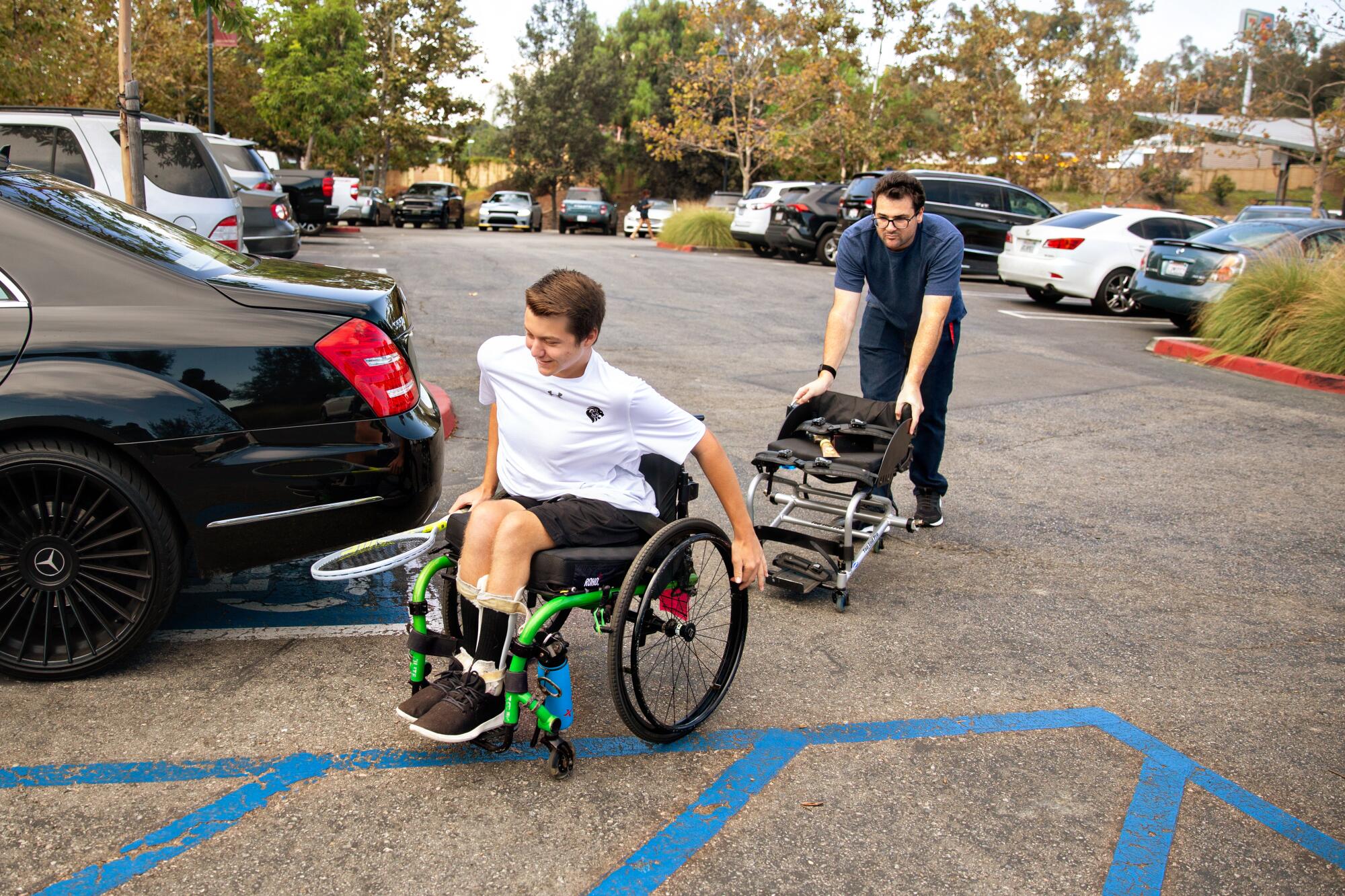
Yet after a couple emails, urging Landon to be brave, he acquiesced. One day, Myles picked his brother up from school, surprised to see Landon carrying a garbage bag full of athletic wear. Was he trying to run away, the older brother asked jokingly.
No, Landon answered, he might be playing on the school tennis team.
“That was a curveball I was not planning on,” Myles said.
Near the end of January, Orahood sent Hemphill an email.
“I feel like you and I are the lucky ones, Amy,” he wrote, “to get to watch Landon bloom.”
Landon had no idea what he was doing in his first match.
“All I knew — hit the ball, hit it back,” he said.
But he was a natural athlete, strong and mobile from years learning the wheelchair. During winter and spring, he and Orahood worked on “movement patterns” — how to execute a turn to cruise smoothly into a swing, how to wheel the chair and retreat while anticipating a hit. The team never had to change a practice drill to accommodate Landon, Orahood said.
He was quiet at first. But slowly, Orahood said, Landon became one of the guys. Hemphill saw him wheeling around with callused fingers from gripping his racket, sitting up straight, tall, proud.
Through unwavering determination, Alamitos High School long snapper Carson Fox has overcome cancer and an amputated leg to excel on the football field.
“It’s like the first time you’ve found what you love,” Hemphill said. “It was the blood, sweat, tears and pure joy on his face.”
Every match, Orahood introduced Landon to opposing teams, explaining he was allowed two bounces to a ball per wheelchair tennis rules. And in March, Landon won his first set against an opponent from Newport Beach Sage Hill on a day when his team lost all other 17.
“When we play various teams, they’ve never seen this before,” frequent doubles partner Christopher Kempf said. “So just to see the anguish in their faces when they lose a point or lose a set to a guy in a wheelchair, it’s really fun to see the triumph he has.”
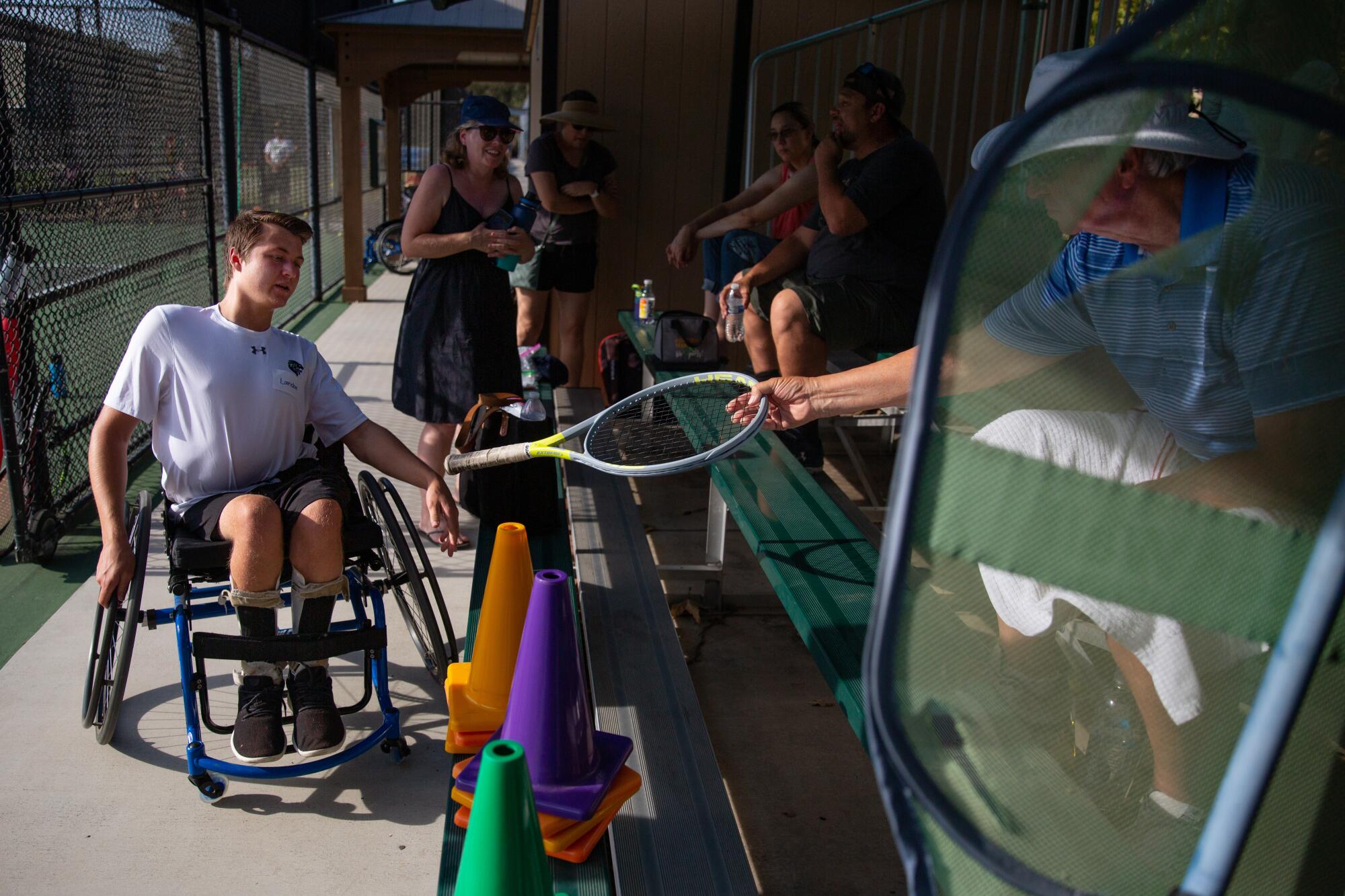
At the end of the season, Landon received JSerra’s “Courage Award” as part of the school’s end-of-year athletic celebration. On May 26, wearing a crisp blue button-down, he rode a lift and then wheeled onto a platform stage in front of a large crowd on the football field. He accepted the trophy from former NFL quarterback Steve Beuerlein, smiling to applause.
Sitting in the spotlight, on his own terms.
At a San Diego State wheelchair tennis camp over the summer, the rising senior introduced himself to the group — Landon, from Orange County. After they broke into warmups, his 20-something doubles partner approached.
“Hey,” the man said, “Are you Landon? Were you in rehab? I don’t think you remember me, but I was there with you.”
It was Gomez — the friend from long ago. Now, coincidentally, a 24-year-old wheelchair tennis star at San Diego State.
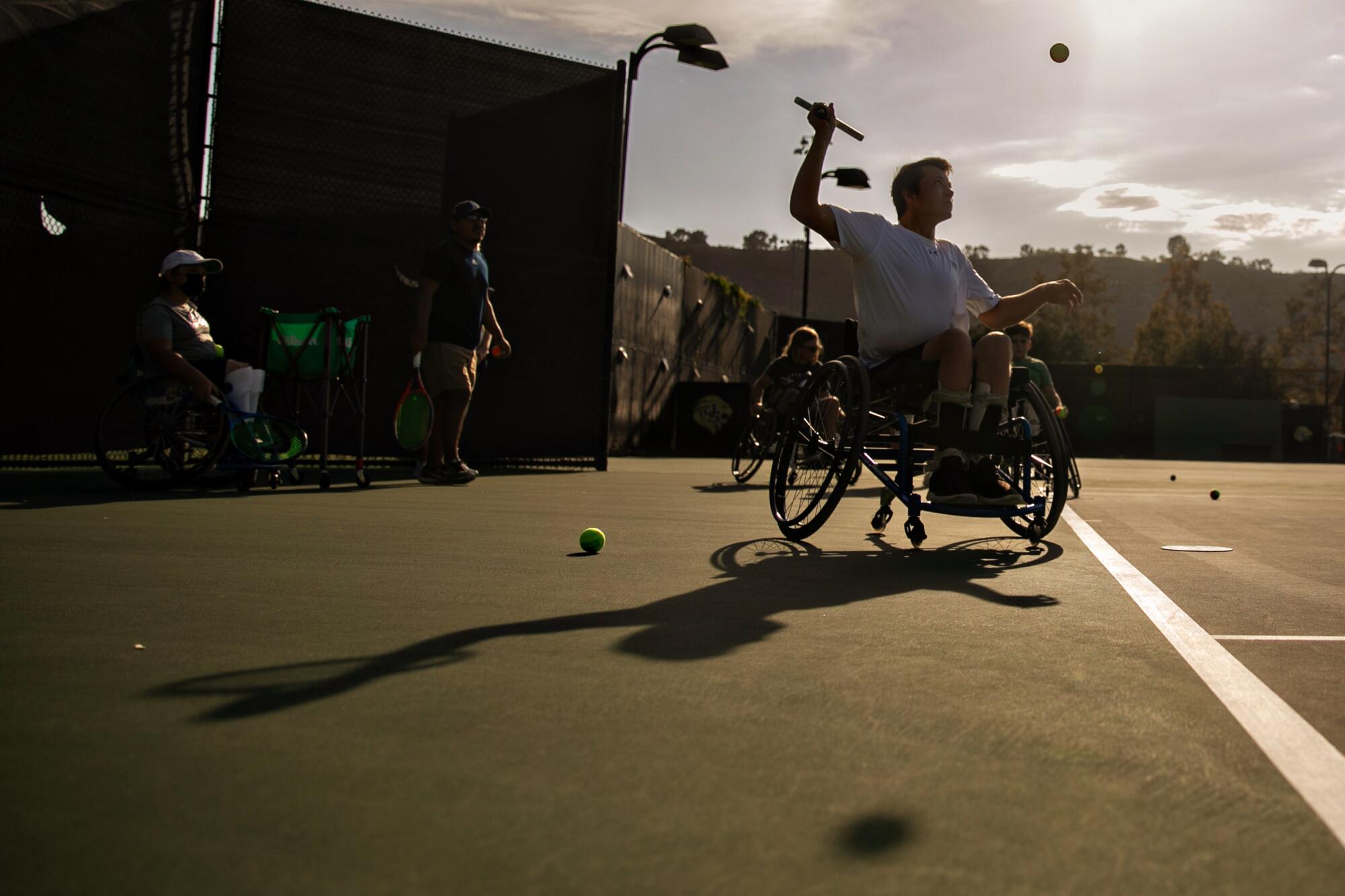
“No way!” Gomez remembered Landon exclaiming.
As Gomez started playing sports, he’d always think back to the young boy in the rehab center, he said. Now, they were linked again through a shared passion, Gomez seeing the boy grown up. Happy. Dedicated.
“He just loves the sport, and I’m happy to see him smile like that,” Gomez said.
Landon was also a frequent guest at the Orahoods’ wheelchair tennis camps at JSerra, where they’d write “Coach Landon” on his nametag. At one of the camps, trying to test a replacement wheelchair, Landon pushed himself up from a spot on the bleachers outside the courts. With a camper’s gaze on him, he grabbed the chair’s armrests without any help, lifting and lowering himself onto the seat.
Junior guard Aaron Powell scores 21 points to help unbeaten Campbell Hall High defeat Inglewood 76-59 in a game at the Redondo Union boys’ basketball tournament.
“For the younger kids to see that and then go, ‘I think I can get myself in my chair’ — that’s just a huge moment of independence,” Hemphill said.
Landon’s dream of turning pro in baseball has rematerialized with tennis. The sport has given him a passion and shaped his future: In November, he accepted a scholarship to play wheelchair tennis at the University of Arizona.
He’s survived tragedy. Survived his world falling apart. And somehow, tennis has brought him here, comfortable in his skin, ready to spread his wings.
“I guess I wasn’t expecting it,” Myles said. “It’s kind of a pleasant surprise.”
Sitting beside him, Landon chuckled softly. He spoke, again breaking out of silence.
“I wasn’t expecting it either.”
More to Read
Get our high school sports newsletter
Prep Rally is devoted to the SoCal high school sports experience, bringing you scores, stories and a behind-the-scenes look at what makes prep sports so popular.
You may occasionally receive promotional content from the Los Angeles Times.
